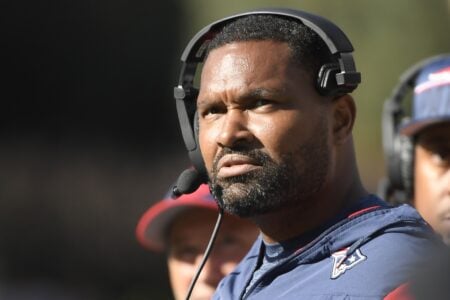The scholarship players do get consideration for their services in the form of room, board and college courses. Someone let me know when Nick Saban or the fat cat conference commissioners are ready to take the same deal. And by the way, this "consideration" cannot be used to buy a sandwich or a sweater or for savings. It's not the same as money.
There are players who are recruited into schools they are not academically qualified to attend. These "scholar-athletes" are the ones herded into nondescript majors and given course loads solely designed to help them maintain their eligibility. There is no question that a "free college education" has different utility for different people. Some can and do make great use of it; others, not so much, and for a variety of reasons.
Is anyone going to argue that the consideration to the players represents market value for their services? Clearly not the case. In addition, the players (unlike the coaches) are expressly forbidden from realizing any other income through endorsements, memorabilia, etc. at risk of losing their "eligibility." Again, not so for the coaches, some of whom rake in $millions for TV shows, and endorsements. Ah, the purity of amateur athletic competition.
Yee argues that there is a racial component to this and he's right. He's not saying that young black players are being discriminated against and (I believe) they are not, but only because the NCAA is perfectly willing to exploit anyone without regard to race, gender, creed, sexual orientation or planet of birth. However, it is true that a disproportionate share of the players are black while the same cannot be said for the coaches and conference commissioners who make the truly big bucks. Who is making the money and who is carrying the load? Nobody is watching to see the coaches coach commissioners administrate. (In case anyone hadn't noticed, the NFL league office is filled with empty suits who make more money than the vast majority of the players in the leagues. Funny how that works, Roger.)
One thing that Yee left out is the huge benefit the NFL realizes from all of this. The league's player development system is college football. It costs the NFL not a penny. Negligible player development costs is another contributing factor to the league's huge profit margin.
The offshoot is this for me is that I'm done watching college football. It's an inferior product, lacking in any reasonable form of competitive balance and is run by fat cat greed-heads, hypocrites and morons (I know, not unlike the NFL). That the University of Alabama pays their strength and conditioning coach $600k per year tells you all you need to know. The fiasco about scheduling the playoff games on New Year's Eve coupled with the recent revelations about the absurd amounts paid the coaches and administrators killed it for me. I've got better things to do.


















